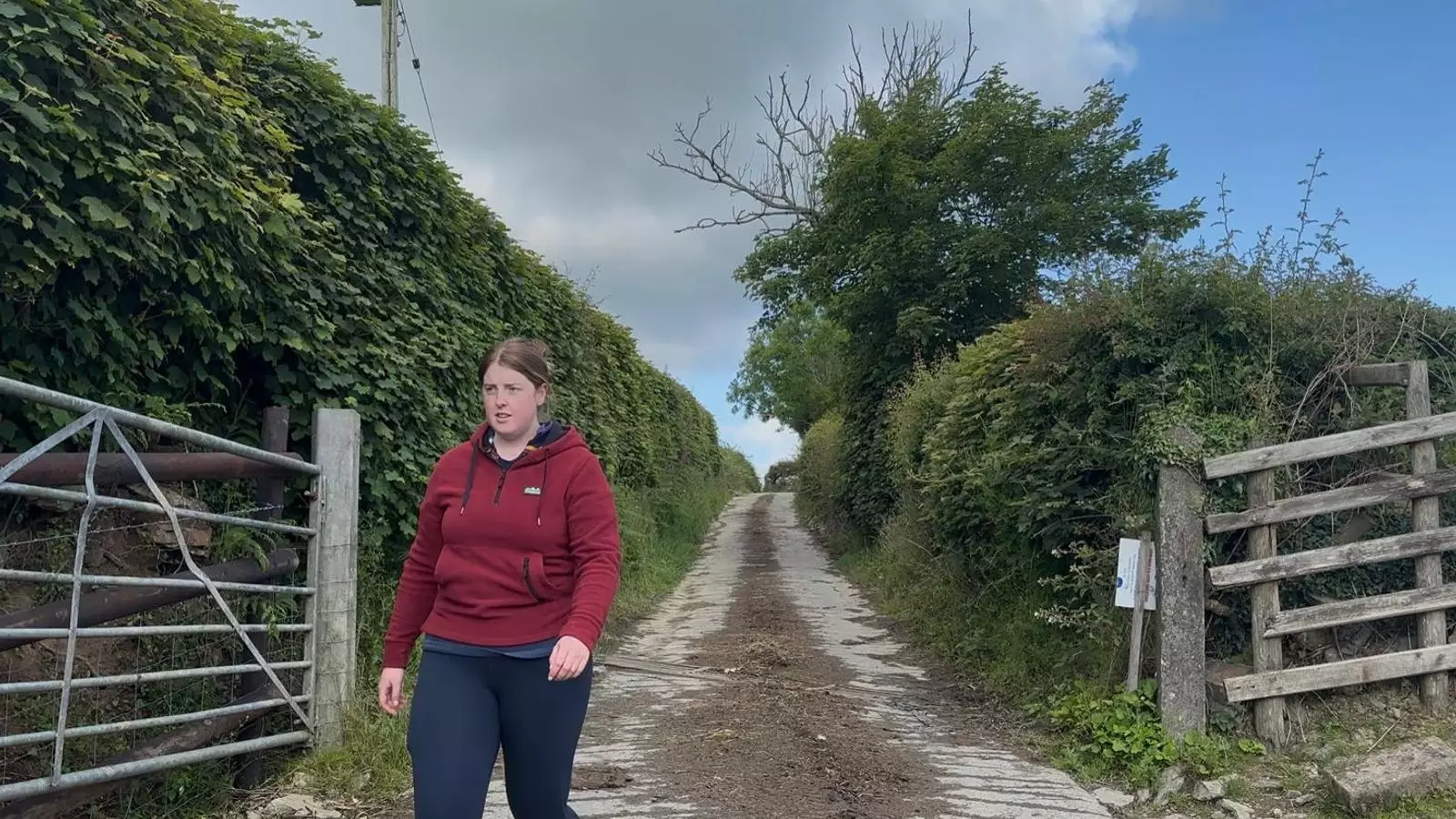As the sun sets on the serene landscapes of Wales, a disturbing trend emerges from the shadows; the escalation of rural crime. A recent report by NFU Mutual underscores a stark reality: rural crime in Wales has surged to its highest level in over ten years, with a staggering estimated cost of £2.8 million last year alone. This 18% increase is particularly jarring as Wales stands alone among the UK nations, witnessing a rise rather than a decline. The implications of this spike stretch far beyond financial losses, shaking the very foundation of rural life and prompting an urgent call for attention to the quieter corners of our society.
For many farmers, like 21-year-old Caryl Davies from Pembrokeshire, this statistical spike translates into palpable fear and heightened insecurity. The theft of essential equipment such as quad bikes is not just a financial blow; it breaks the delicate sense of safety that rural families have historically enjoyed. Theft in such seemingly safe areas is not just shocking; it is a harbinger of deeper societal issues. When someone feels unsafe in their own home, it signals a breakdown of community trust and stability. The theft of Davies’ quad bike, vital for daily operations on the farm, exemplifies how rural crime doesn’t merely take away physical assets; it dismantles the confidence of families who have nurtured their lands for generations.
Drained Resources and Rising Expenses
Descriptive statistics often fail to capture the emotional toll of crime on rural communities. According to Davies, replacing a quad bike can cost near £10,000, a daunting figure for farmers who already endure the financial strains of modern agriculture. With an industry grappling to survive amidst unpredictable market conditions and the ever-changing climate, the additional burden of securing farms against theft feels like a cruel joke. The irony that farmers must spend their meager profits on security measures to protect their livelihoods paints a stark image of the challenge they face. The relentless cycle of economic strain and insecurity is not just about dollars and cents; it bleeds into the everyday lives and mental health of those who live and work on the land.
While it’s easy to abstract this issue into overwhelming statistics or generalized anecdotes, individual stories shed light on its local impact. Farmers such as James Bourne have felt the psychological and economic effects of rural crime firsthand. The theft of over 200 sheep from his flock isn’t merely a loss of livestock; it’s a persistent worry that looms over his family’s financial stability. This feeling of vulnerability seems to transcend the boundaries of wealth or resource; it’s a shared experience that can alienate and isolate community members who once felt a strong sense of camaraderie.
Organized Crime: A New Threat to Old Traditions
Andrew Chalk from NFU Mutual laid bare another unsettling layer of this issue: the emergence of organized crime targeting rural areas. With criminals employing increasingly sophisticated means, including drones for reconnaissance, traditional policing methods seem antiquated in the face of such new-age threats. The notion that “organised criminals are looking for ways to target the countryside” unearths a complex social relationship in which age-old traditions of rural life face existential threats from modern crime tactics. When a rural haven transforms into a hunting ground for thieves, the quaint narrative of pastoral life is irreversibly altered.
Effective policing is essential in mitigating these concerns. Yet the vastness of rural areas poses significant challenges for local law enforcement. As acknowledged by Dyfed-Powys Police, the deployment of advanced technologies such as DNA asset-marking kits is a step toward empowering farmers in this uphill battle. However, technology alone cannot bridge the emotional chasm wrought by crime’s unpredictability. Farmers must feel supported, not just equipped, to face this daunting challenge. In an age where community engagement and visibility are more vital than ever, it is imperative for law enforcement agencies to foster deeper connections with rural dwellers rather than merely focusing on technological solutions.
Community Resilience and Renewal
Despite the grim statistics, there exists a flicker of hope within these challenges. Rural communities possess a resilience that may prove to be their greatest defense. With encouragement to remain vigilant and report suspicious activity, local networks can not only enhance their own security but also fortify community bonds. This proactive approach can disrupt the narratives of crime while invigorating a collective response to dealing with adversity.
It is not enough to merely dwell on statistics or lament losses; instead, the focus should shift toward revitalizing community spirit and fostering partnerships among farmers, local authorities, and law enforcement. After all, when communities come together to reclaim their space and restore the sanctity of rural life, they can create an environment where fear no longer dictates their daily existence. Such collective action stands as a beacon of strength against the rising tide of rural crime, transforming a time of uncertainty into an opportunity for renewal and connection. The challenge lies ahead, but it is one that communities have the power to meet head-on.


Leave a Reply